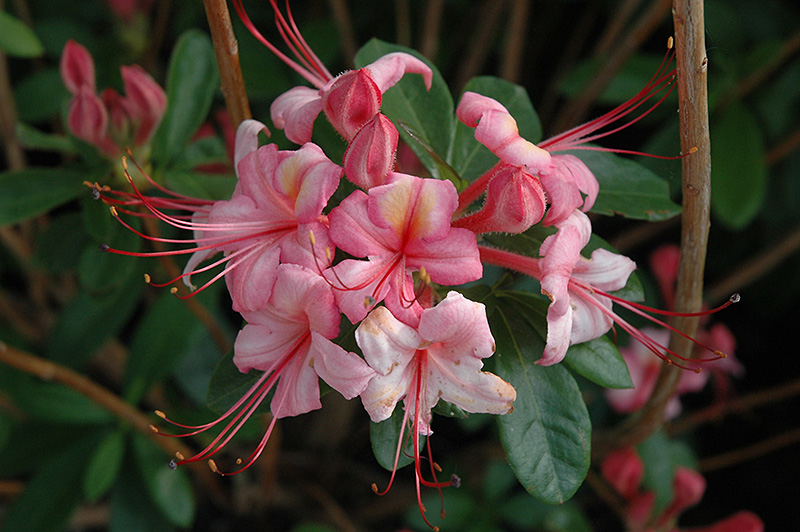Brunswick
422 Bath Road
Brunswick, ME 04011
1-800-339-8111
207-442-8111
Falmouth
89 Foreside Road
Falmouth, ME 04105
1-800-244-3860
207-781-3860
Cumberland
201 Gray Rd (Route 100)
Cumberland, ME 04021
1-800-348-8498
207-829-5619
Pink And Sweet Azalea
Rhododendron 'Pink And Sweet'
Height: 4 feet
Spread: 4 feet
Sunlight:
![]()
![]()
Hardiness Zone: 4a
Group/Class: Weston Hybrids
Description:
A unique broadleaf evergreen shrub with extremely fragrant light pink flowers tinged yellow in late spring and a compact habit, good fall color; absolutely must have well-drained, highly acidic and organic soil, use plenty of peat moss when planting
Ornamental Features
Pink And Sweet Azalea is blanketed in stunning clusters of fragrant pink trumpet-shaped flowers with a yellow flare at the ends of the branches in late spring before the leaves. It has dark green deciduous foliage. The glossy narrow leaves turn an outstanding red in the fall.
Landscape Attributes
Pink And Sweet Azalea is a multi-stemmed deciduous shrub with a more or less rounded form. Its average texture blends into the landscape, but can be balanced by one or two finer or coarser trees or shrubs for an effective composition.
This is a relatively low maintenance shrub, and should only be pruned after flowering to avoid removing any of the current season's flowers. It has no significant negative characteristics.
Pink And Sweet Azalea is recommended for the following landscape applications;
- Accent
- Mass Planting
- General Garden Use
Planting & Growing
Pink And Sweet Azalea will grow to be about 4 feet tall at maturity, with a spread of 4 feet. It tends to be a little leggy, with a typical clearance of 1 foot from the ground. It grows at a slow rate, and under ideal conditions can be expected to live for 40 years or more.
This shrub does best in full sun to partial shade. You may want to keep it away from hot, dry locations that receive direct afternoon sun or which get reflected sunlight, such as against the south side of a white wall. It requires an evenly moist well-drained soil for optimal growth, but will die in standing water. It is very fussy about its soil conditions and must have rich, acidic soils to ensure success, and is subject to chlorosis (yellowing) of the foliage in alkaline soils. It is somewhat tolerant of urban pollution, and will benefit from being planted in a relatively sheltered location. Consider applying a thick mulch around the root zone in winter to protect it in exposed locations or colder microclimates. This particular variety is an interspecific hybrid.

